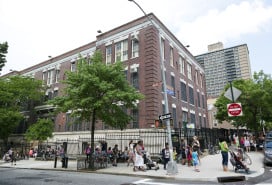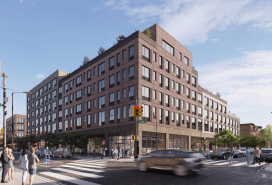The Market
A NYC real estate lawyer reveals the 14 biggest surprises for first-time buyers

By the time I am hired to represent them, most first-time co-op and condo buyers have overcome their purchase-price sticker shock of New York.
But like most major seismic events, there are aftershocks—some financial, some procedural.
If you’re a novice at the NYC real estate game, here are a few potential surprises:
- You will inevitably be shocked by the depth and the intrusiveness of the co-op or condo board package you are asked to prepare, and frightened a bit at the potential identity theft risk involved in handing over all your financial information, including social security numbers and account numbers, to complete strangers on the board, management company and brokers on the sale side whom you have literally just met.
- Even if you are rejected and insulted by the co-op board, you are not entitled to a refund of the $750-$1,000 in processing fees you paid the managing agent.
- The deposit due on contract signing is 10%, not 5%. And yes, as soon as the seller signs the contract, that check is actually deposited by the seller's attorney and held in an escrow account (most likely NOT earning interest) by the seller's attorney.
- The storage unit doesn’t necessarily transfer with the apartment.
- Just because you were prequalified for a mortgage does not mean the bank will actually loan you the money once you pick an apartment and deliver to the bank all your financials.
- Similarly, just because the bank says it’s going to lend you money (via a commitment letter) doesn’t mean it actually will. Commitment letters are full of conditions that must be cleared before a closing can occur. Today banks change their minds based on anything from too many subletters or investor-owned apartments in your building, a lawsuit in the building or mechanic’s lien on another unit in the building, to the fact that less than 10% of a building’s operating budget is earmarked for reserves. You can also find yourself grasping at straws if the appraisal comes in lower than expected, or you made a big purchase that somehow affected your credit rating (no car leases, no new credit cards, no furniture buying, etc. until the deal is done.)
- Depending on your financial situation and citizenship status, you may be asked to put up to a year (or two!) of common charges into a perpetual escrow—meaning you won’t see that money again until you move out or the board thinks that your financial situation has changed.
- You cannot paint the walls and redo the floors the day after you close on the apartment. You will first need to submit licensed insurance certificates from your contractor and get the permission of the board. That can be easy or difficult depending on the building. If you’re doing a renovation, you’ll need to get board approval, sign an alteration agreement, follow all kinds of rules (from work hours, length of time to accomplish a renovation, to when the board permits it, to debris removal), provide insurance certificates and pay deposits.
- The board will not accept alteration applications until you own the apartment.
- The super doesn’t fix everything in your apartment for free. After the closing, everything from the “walls in” and "cement floors up" is your responsibility, from toilets to HVAC units.
- The bank does not bring the full amount of the loan to the closing. It deducts all its expenses and so does the bank attorney, and the leftover amount is for you. It can be as little as $3,000 less than you are expecting to as much as over $10,000 or less depending on the size of your purchase, the mortgage amount, the taxes and insurance (escrows), and the time of month you close. The earlier you close in a month, the larger the deduction at closing for the interest per diem; depending on the size of the loan, the number fluctuates.
- You won’t get the final numbers on all of the checks you have to bring to closing until the night before or even the day of, when you are, ideally, also doing your walk through. So on the day of closing, you will need to inspect your new place, then run to the bank for bank checks, and then to the closing.
- About those checks: Only official bank checks, drawn on a New York State bank, are accepted in NYC. Wire transfers are rare. That means if you have money in any account other than a savings or checking account at a local bank, you must liquidate the funds a few weeks early or only wire into your savings. The banks take forever to clear large deposits--sometimes even 10 business days. Purchasers need to be prepard and estimate closing costs and get the money ready for the day of closing.
- On top of everything else, you will probably be expected to pay your building $500-$2,000 in move-in fees and deposits.
Karen S. Sonn is a New York City transactional real estate attorney.
More posts by Karen Sonn:
Here are 7 things your lawyer should do for you when you buy a co-op or condo in NYC
Brick Underground articles occasionally include the expertise of, or information about, advertising partners when relevant to the story. We will never promote an advertiser's product without making the relationship clear to our readers.

























